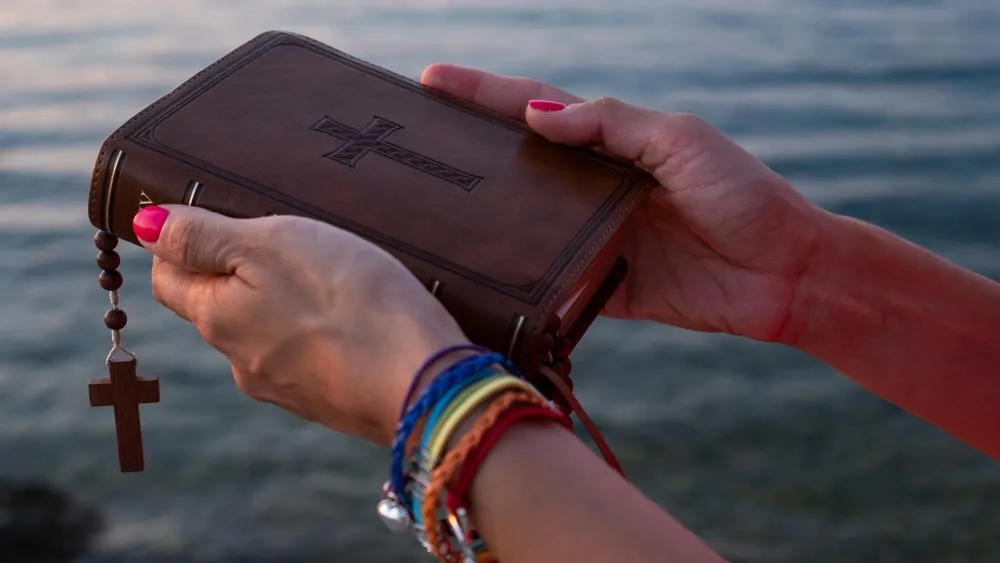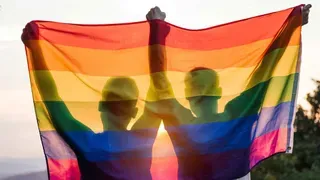December 23, 2010
Canadian Gay Couple Firebombed
Kilian Melloy READ TIME: 6 MIN.
A same-sex male couple in Canada has apparently been firebombed, losing their home in the ensuing blaze. The seeming hate crime unfolded against a national backdrop that saw gays excoriated by a television preacher and the work of a gay sculptor censored.
The gay family that was burned out of their home on Oct. 18 lived on Prince Edward Island, in the small town of Little Pond, according to a, Oct. 26 National Post article. The men, who were described as being "middle aged," barely escaped the conflagration that resulted after a firebomb was hurled through their window early in the morning, the article said. The home was "a total loss," an official report said. A week before the home was set alight, the men's mailbox was burned.
Though local residents, including the Rev. Beth Johnston, spoke of the blaze as a "hate crime" that targeted the men because they are gay, the police professed not to have "gone down that road."
While locals expressed shock and dismay over the firebombing, the national picture is not entirely friendly toward gays. A Canadian televangelist, Charles McVety, had made gays the object of his wrath, telling viewers that gays wanted to teach small children in school how to have gay sex and claiming that a hate crimes law made it a crime to condemn homosexuality on religious grounds, reported a Dec. 23 National Post op-ed by Ronald I. Cohen
The Canadian Broadcast Standards Council found that McVety's televised statements against gays were "disparaging and unacceptable," and McVety saw his program taken off their air temporarily. McVety now claims that the content of his program is subject to review.
The claim that hate crimes laws penalize Christians for their Biblically based beliefs that homosexuals are "sinful" is a common one. Proponents of such laws say such claims are factually inaccurate. Cohen called McVety's claim that hate crimes protections criminalize Christians an "absurd accusation.... It is only genocidal advocacy or hatred incitement that are crimes, not religion-based or personally-motivated 'statements' against the (for some) sinful nature of homosexuality or related issues such as same-sex marriage."
As for McVety's insinuation that gays had attempted to get sexually explicit material taught in schools, "While McVety may not like homosexuality, and that is his right, to leave the totally unsubstantiated and insupportable impression that gay and lesbian adults have a predilection toward sex with young, 'underage people' is insidious and unacceptable," argued Cohen.
An opposing view was set out in a separate op-ed in the same edition of the National Post. Jesse Kline argued that McVety was being subjected to "censorship" by the CBSC. "McVety has been trying to spin this story ever since the decision was released," Kline wrote. " 'How can the private broadcasters justify blacklisting McVety because he opposed spending tax dollars in support of the gay pride parade?' reads a statement on the Word TV website.
"The council's decision specifically states that it has 'no difficulty with the broadcast of a critical position regarding the funding of LGBT events,' " Kline's op-ed continues. "What it did have a problem with was McVety's mischaracterization of the Pride parade as a 'sex parade' that is rife with 'sexual perversion.' " Despite what appeared to be willful mischaracterizations on McVety's part, however, Kline proceeded to argue that, "McVety deserves to be criticized, but not censored."
Kline went on to argue that the code of ethics under which the CBSC made its decision to punish McVety was based on an urge by the broadcasting company to self-censor in a bid to fend off any threat of government censorship. "Yet, a censorship regime created under the threat of state coercion is not all that much better than government censorship, as the result is the same," Kline wrote. "McVety will likely be prevented from making similar remarks in the future and the decision will have the effect of chilling free speech.
"While I fundamentally disagree with McVety's views on homosexuality, they do represent the views of many religious people," Kline added. "The Christian television station CTS, which broadcasts the show, would be wise to ignore rulings that attempt to censor opinions that are held by many of its viewers."
Kline proposed that the controversy surrounding McVety's statements was a welcome thing--a light turned upon McVety's distortions that served the cause of truth better than attempts to squelch the televangelist would do. "Instead of McVety's views on homosexuality being confined to a relatively small audience of like-minded people, they are now making national headlines," Kline noted. "And as much as the politically correct crowd would like you to think that there's such a thing as a reasonable limit on free speech, this is simply not the case."
Gay Artist = Gay Art?
Another flap over free speech erupted from the opposite end of the political spectrum, when the public library in Tillsonburg, Ontario installed four works by a gay sculptor, only for the exhibition case to then be draped with a cloth following charges from a local resident that at least one of the pieces represented homosexual eroticism.
The sculptor, R. Bruce Flowers, said that there is "nothing offensive or pornographic about" his work, and argued that his sculptures were being "eroticized" and censored simply because they are the work of "a gay man who sculpts positive images of his community," a Dec. 15 article at local newspaper the Tillsonburg News reported.
"What's going in Tillsonburg is kind of upsetting," Flowers told the newspaper, adding, "This censorship is deeply distressing because of the negative message it sends out to the homosexual community. With this kind of hostility in their own community, what chance do young people have of making their transition into a homosexual lifestyle valid?"?
The most controversial of the Flowers pieces, titled "Joy," depicts one man throwing his arms around another as both smile broadly. The playful piece was unfairly "eroticized," according to Flowers. But the artist added that the fact that the piece has been censored feds into the conversation that art enables in the culture at large. "We're not moving this exhibit," the artist told the media. "I think it would be a far more powerful statement to leave the cloth there if that's what they think."
Perhaps to that end, a sign attached to the cloth invited library patrons to "Feel free to view the display of sculpture (by artist R. Bruce Flowers) behind the curtain."
The article speculated that public opposition was largely based on--if not confined to--a Dec. 9 letter to the editor that the Tillsonburg News had previously published, in which a man named Greg Friesen complained about the library showcasing depictions of "homosexual intimacy."
The letter drew responses in the editorial pages such as that from Fr. Matthew George of St. Mary's Parish, who rebutted Friesen's claims by writing, "I'm guessing that the piece that elicits this strange response is the one called Joy. How doubly sad that something which to me seems to capture a moment of simple joy and shared humanity has been condemned as somehow advancing the homosexual agenda and not worthy of display in our library."
The library's board convened a meeting on the controversy, at which gay resident Dennis Cutts spoke out against the sculpture's veiling. "Personally I feel this decision by the library tells me I shouldn't feel as though I'm part of this community as a gay person," Cutts told the board. "I feel this is bullying. It makes me feel afraid and uncomfortable."
Flowers attributed opposition to his sculptures, which he deemed "extremely family-friendly," to a local newspaper article that mentioned his sexuality, a Dec. 22 Xtra! article said. "The local Baptist church took great offense to the work as soon as they found out I was a gay sculptor," Flowers told the media. "It seemed to have contaminated the work. Suddenly it was all negatively eroticized."
Added Flowers, "What was really frightening about this whole thing is, it's not like they came and studied the work, analyzed it, and then were offended by it.... It's just because I'm a gay sculptor."
At that point, the local GLBT community rallied to Flowers' defense. "But so many in the queer community in this area couldn't speak up because they're closeted," Flowers noted. "It's created this enormous dialogue in the community. It's really all just homophobic censorship coming out of this New Hope Baptist Church."
The church's pastor, John Friesen-father of Greg-told Xtra!, "People in the community I talk to, they are not pleased either." Added the pastor, "It's not portraying family values. Do you see a man and a woman and children?"
Xtra! reported that at a Dec. 14 meeting attended by the mayor, the library board voted unanimously to keep the four Flowers pieces on display until the end of February, 2011--sans veil.
Kilian Melloy serves as EDGE Media Network's Associate Arts Editor and Staff Contributor. His professional memberships include the National Lesbian & Gay Journalists Association, the Boston Online Film Critics Association, The Gay and Lesbian Entertainment Critics Association, and the Boston Theater Critics Association's Elliot Norton Awards Committee.







